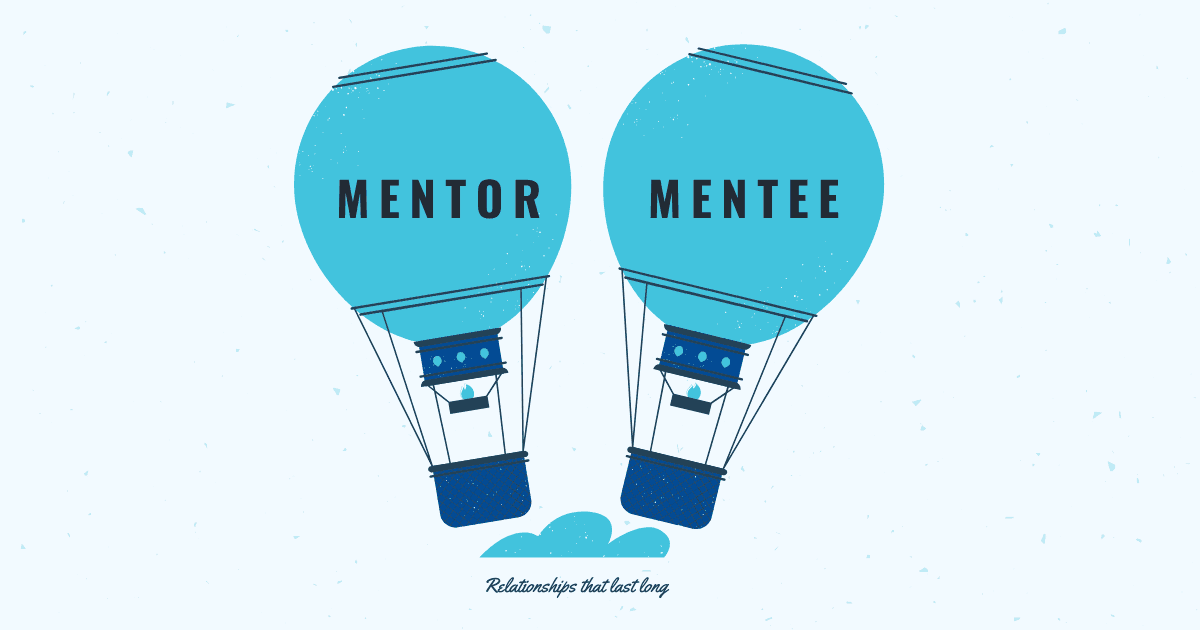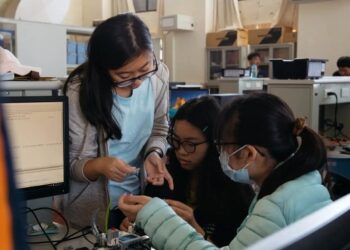Mentorship is a transformative relationship that has shaped countless lives and careers. It’s a powerful partnership where an experienced individual, the mentor, guides and supports a less-experienced person, the mentee, in their professional or personal development. This isn’t a one-way street; it’s a mutually beneficial exchange that fosters growth, confidence, and wisdom for both parties. In an increasingly complex world, the guidance of a trusted mentor can be the difference between stagnation and success. This comprehensive guide delves into the profound impact of mentorship, its various forms, how to find the right mentor, and the key elements that make a mentorship truly successful.
The concept of mentorship is as old as civilization itself. The term “mentor” originates from Greek mythology, where Mentor was the trusted friend of Odysseus. When Odysseus went to fight in the Trojan War, he entrusted Mentor with the education and guidance of his son, Telemachus. This ancient tale illustrates the core principles of mentorship: trust, wisdom, and the passing of knowledge from one generation to the next.
In the modern context, mentorship has evolved beyond a simple teacher-student dynamic. It has become a strategic tool for professional development, a cornerstone of corporate leadership programs, and a vital support system for individuals navigating the complexities of their personal lives. The benefits of a strong mentorship are multifaceted, impacting everything from career trajectory to personal well-being.
A. The Indispensable Benefits of Mentorship
A mentorship is more than just a series of conversations; it’s a profound relationship that offers tangible and intangible benefits for the mentee, the mentor, and the organization they are a part of.
A. For the Mentee:
A. Accelerated Learning and Skill Development: A mentor provides a shortcut to knowledge and skills that would otherwise take years to acquire. They share their professional experiences, offer practical advice, and help the mentee avoid common pitfalls. For a recent graduate, a mentor can demystify the corporate world. For an entrepreneur, a mentor can offer crucial business insights.
B. Increased Confidence and Motivation: Having a trusted advisor who believes in your potential can be a huge confidence booster. Mentors provide encouragement during setbacks and celebrate successes, helping the mentee develop a more resilient and optimistic mindset. This emotional support is often as valuable as the professional advice.
C. Expanded Professional Network: Mentors often have extensive networks that they can share with their mentees. A single introduction from a mentor can open doors to new opportunities, partnerships, and collaborations. This expanded network is a vital asset for career growth.
D. Objective Feedback and Perspective: A good mentor offers honest, constructive feedback that can be difficult to get from colleagues or supervisors. They provide an outside perspective, helping the mentee see their blind spots and make better decisions. This unbiased feedback is crucial for personal and professional growth.
E. Career Advancement: Studies consistently show that individuals with a mentor are more likely to get promotions, earn higher salaries, and feel more satisfied with their careers. The guidance received from a mentor helps mentees make more strategic career moves and develop a clear path to their goals.
B. For the Mentor:
A mentorship is not a one-way street. Mentors also reap significant rewards from the relationship.
A. Enhanced Leadership and Communication Skills: The act of guiding another person hones a mentor’s leadership and communication skills. They learn to listen more effectively, provide clear feedback, and adapt their advice to different personalities.
B. Fresh Perspectives and Insights: Mentees often bring new ideas, technologies, and perspectives to the table. This exchange can help a mentor stay current with industry trends and challenge their own assumptions, preventing professional stagnation.
C. Personal Satisfaction and Fulfillment: The act of helping someone succeed is deeply rewarding. Mentors often feel a sense of pride and accomplishment in seeing their mentees grow and thrive. This altruistic act contributes to a more fulfilling professional life.
D. Recognition as a Leader: Being a mentor establishes a person as a leader and an expert in their field. It’s a testament to their knowledge and experience, which can further elevate their professional reputation within their organization and industry.
C. Types of Mentorship: A Diverse Landscape
Mentorship isn’t a one-size-fits-all concept. It comes in various forms, each suited for different goals and contexts.
A. Traditional Mentorship: This is the classic one-on-one relationship where an experienced individual guides a junior one, often within the same organization or industry. It’s a long-term relationship built on trust and consistent communication.
B. Peer Mentorship: This involves two individuals at a similar career level who mentor each other. They provide mutual support, share insights, and hold each other accountable. This form of mentorship is particularly effective for navigating similar challenges and sharing resources.
C. Group Mentorship: A single mentor guides a group of mentees. This format is often used in corporate programs or workshops. It allows the mentor to reach a larger audience and encourages peer-to-peer learning among the mentees.
D. Situational Mentorship: This is a short-term, goal-oriented relationship focused on a specific challenge. For example, a mentee might seek a mentor to help them prepare for a job interview or to learn a new software program.
E. Reverse Mentorship: In this innovative model, a junior employee mentors a senior executive. The junior mentor teaches the senior leader about new technologies, social media trends, or emerging market dynamics. It’s a powerful way to bridge generational gaps and keep leadership informed.
D. How to Find and Cultivate a Great Mentorship
Finding a mentor is not as simple as asking someone, “Will you be my mentor?” It’s a strategic process that requires thoughtful preparation and a clear understanding of your goals.
A. Define Your Goals: Before you even start looking, you must know what you want to achieve. Are you looking for career advice, help with a specific skill, or personal development? Clearly defining your goals will help you identify the right person.
B. Identify Potential Mentors: Look for individuals you admire. They could be a senior colleague, a professional in your field you follow online, a professor, or even a friend of a family member. Pay attention to their values, their career trajectory, and their communication style.
C. Build a Relationship Organically: Don’t approach a potential mentor with a formal request right away. Instead, build a relationship naturally. Ask for a brief coffee chat, invite them to a networking event, or seek their opinion on a professional challenge you’re facing. Show genuine interest in their work and their insights.
D. Make a Clear and Respectful Request: Once you have a rapport, you can make a formal request. Be specific about why you want them as a mentor and what you hope to gain from the relationship. Emphasize that you respect their time and are willing to be proactive.
E. Nurture the Relationship: A mentorship requires effort from both sides. Always be prepared for your meetings. Have a clear agenda. Be a good listener. And most importantly, show gratitude and report on your progress. Let them know how their advice has helped you. A mentor’s greatest reward is seeing their mentee succeed.
E. Key Elements of a Successful Mentorship
Not all mentorships are successful. The most effective ones share several common characteristics.
A. Clear Expectations: Both the mentor and mentee must have a clear understanding of the goals, frequency of meetings, and communication styles. Setting these expectations upfront prevents misunderstandings and ensures the relationship stays on track.
B. Mutual Trust and Respect: The foundation of any strong mentorship is trust. The mentee must feel comfortable being vulnerable and discussing their challenges, and the mentor must respect confidentiality.
C. Active Listening and Open Communication: The mentee must be willing to listen to advice, even if it’s difficult to hear. The mentor, in turn, must be an active listener who understands the mentee’s unique situation before offering guidance.
D. Commitment from Both Parties: A successful mentorship requires time and effort from both individuals. It’s not a passive relationship; it’s an active partnership. Regular meetings and follow-ups are crucial to maintaining momentum.
E. Focus on Growth, Not Just Advice: A mentor’s role is not just to give answers. It is to help the mentee develop the skills and confidence to find their own solutions. The best mentorships empower the mentee to become independent thinkers and problem-solvers.
F. The Future of Mentorship: Technology and Accessibility
The digital age is transforming how mentorship works, making it more accessible and scalable than ever before.
A. Digital Mentorship Platforms: A wide range of platforms and apps are now dedicated to connecting mentors and mentees globally. These platforms use algorithms to match individuals based on their skills, goals, and industries, democratizing access to mentorship.
B. AI-Powered Mentoring: Artificial intelligence is being used to analyze a mentee’s needs and suggest personalized learning paths and resources. While AI cannot replace a human mentor’s emotional intelligence, it can supplement the relationship by providing data-driven insights.
C. Micro-Mentorship and Flash Mentoring: The formality of traditional mentorship is giving way to more flexible models. “Flash mentoring” involves a single, one-off meeting to discuss a specific topic. This model is ideal for busy professionals and those with a single, pressing question.
In conclusion, mentorship is a powerful catalyst for personal and professional growth. It’s a dynamic relationship that offers invaluable guidance, accelerates learning, and builds confidence. While the digital age is changing how we connect, the core principles of trust, respect, and mutual growth remain timeless. Whether you are seeking a mentor or considering becoming one, embracing this powerful relationship can unlock new opportunities and lead to a more fulfilling and successful life.














